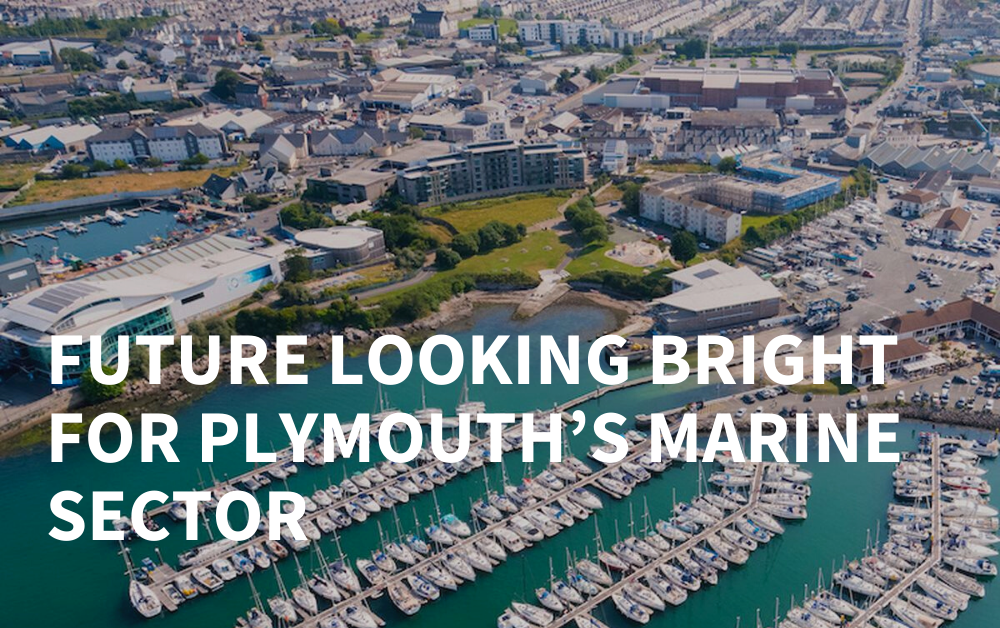Thousands of job opportunities will be created in Plymouth this year as innovative and forward-thinking marine projects come into existence.
Building on a 200 year legacy as a global centre of marine innovation, this year will see the Plymouth and South Devon Freeport become operational and the continued development of Smart Sound Plymouth, the Ocean Futures innovation support programme and the Plymouth Sound National Marine Park, creating new jobs and cementing the city’s position as a world leader in the marine industries.
Council Leader Richard Bingley said: “The UK has always been front and centre of maritime innovation and the marine international supply chain. Plymouth City Council, our government and business partners, are co-crafting a global-facing delivery strategy to ensure that Plymouth becomes an international hub for the maritime sector.
“We have two centuries of marine technology development heritage to build upon, and now this rich community expertise can be harnessed to our existing world-class marine and defence research here across our Ocean City. The global marine sector is estimated to be worth a staggering $3 trillion by 2030. Mixing our energy, ambition and growing expertise here is our city, there is no reason why we cannot deliver thousands of higher-value jobs for our residents during the upcoming decade and beyond.”
Plymouth boasts an impressive pedigree when it comes to the marine sector, with the largest concentration of marine scientists in the world. Developments over the past decade such as Smart Sound Plymouth, the Oceansgate marine Enterprise Zone and the Marine Business Technology Centre (MBTC) innovation support service have encouraged collaboration and creativity between the private and public sectors with three world leading areas of excellence emerging: marine autonomy, clean propulsion and digital ocean technology. This has resulted in the Department of International Trade (DIT) recognising Plymouth as a UK High Potential Opportunity (HPO) for marine autonomy.
For the people of Plymouth, this means new job opportunities. The Freeport will generate more than 3,500 jobs, with everything from starter jobs to high value technical roles. More than 2,700 of these are set to pay about the average wage and 300 to 500 people will be upskilled each year.
Smart Sound Plymouth, a proving area for designing, testing and developing cutting-edge marine products and services covers 1,000 square kilometres of ocean and stretches 25 miles offshore. A valuable resource for businesses and researchers, it’s now expanded to include Smart Sound Connect: the world’s first ocean-focussed 5G testbed.
The 5G network, developed in partnership with Vodafone, Nokia and Steatite, has been funded by the Heart of the South West LEP. It provides seamless connectivity for research and testing of new technologies, including autonomous vessels, is free to use and is fully managed by the Council and Plymouth Marine Laboratory (PML), supported by the Marine Biological Association (MBA), University of Exeter and the University of Plymouth. Its fundamental aim is to support innovation and business growth, ultimately resulting in new jobs across the region.
As a result of the direct focus on marine innovation, Plymouth City Council has led on the development of Ocean Futures. This new initiative, developed in partnership with industry and our world leading research base, forms the foundation of innovation support and a direct investment framework for increased development from the UK and the rest of world to further accelerate the Plymouth-centred marine innovation hotbed for the South West. Partners include the FAST Cluster, Babcock, Thales, Siemens, the Universities of Plymouth and Exeter, PML, MBA, Lloyds Register, NPL, UKHO, Met Office, Innovate UK, DIT and regional local authorities.
For more information about the marine sector in Plymouth, visit investplymouth.co.uk.


